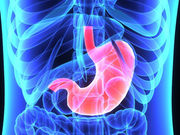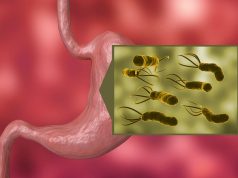In direct comparison, researchers found no real difference between transplant, antibiotic treatment
FRIDAY, Jan. 13, 2017 (HealthDay News) — A single fecal transplant delivered by enema is apparently no more effective than oral antibiotics in treating recurring cases of Clostridium difficile infection, according to research published recently in Clinical Infectious Diseases.
Susy Hota, M.D., medical director of infection prevention and control at the University Health Network in Toronto, and colleagues randomly assigned patients with recurrent C. difficile to two treatment groups. Patients in the fecal transplant group were given a 14-day course of oral vancomycin followed by a single fecal enema. The standard treatment group received a 14-day course of oral vancomycin, followed by four weeks of tapering doses of the antibiotic. Patients were followed for 120 days.
After an interim analysis, the researchers stopped the trial because the results showed no real difference in outcomes. The team found that 56.2 percent of patients who received fecal transplant and 41.7 percent of the standard treatment group experienced recurrence of C. difficile infection, which corresponded with symptom resolution in 43.8 and 58.3 percent, respectively.
“In patients experiencing an acute episode of recurrent C. difficile infection, a single fecal transplantation by enema was not significantly different from oral vancomycin taper in reducing recurrent C. difficile infection,” the authors write. “Further research is needed to explore optimal donor selection, fecal transplantation preparation, route, timing, and number of administrations.”
Several authors disclosed financial ties to the pharmaceutical and diagnostics industries.
Full Text (subscription or payment may be required)
Copyright © 2017 HealthDay. All rights reserved.








